The Right Way Out of Afghanistan
To leave behind a stable government in Afghanistan in 2014, the U.S. needs to work towards electoral reforms, negotiations with the Taliban, and a regional settlement involving Pakistan.
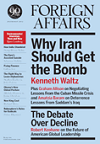 Courtesy: Foreign Affairs
Courtesy: Foreign Affairs
To leave behind a stable government in Afghanistan in 2014, the U.S. needs to work towards electoral reforms, negotiations with the Taliban, and a regional settlement involving Pakistan.
 Courtesy: China Briefing
Courtesy: China Briefing
Foreign investors in China can benefit from setting up Wholly Foreign-Owned Enterprises (WFOEs) and Foreign-Invested Commercial Enterprises (FICEs) to start businesses in trade and the service industry.
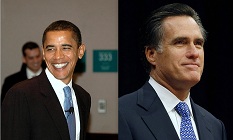 Courtesy: Malwack/Wikimedia Commons
Courtesy: Malwack/Wikimedia Commons
C. Raja Mohan says Indians watching how the U.S. presidential race shapes up shows a growing appreciation of how political developments within the United States can affect Indian interests. He answered questions on a variety of subjects involving India-U.S. relations in this interview with Bernard Gwertzman.
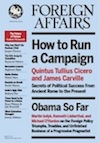 Courtesy: Foreign Affairs
Courtesy: Foreign Affairs
The Western sanctions imposed on Iran to force it to abandon its nuclear programme have succeeded in bringing Tehran back to the negotiating table, but they are a tactic, not a strategy. Any long-term policy has to aim for a democratic Iran.
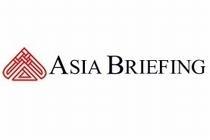 Courtesy: Asia Briefing
Courtesy: Asia Briefing
Recent events shows that even though China's leadership has evolved and political knowledge among chinese masses has grown, the path to power in China is still dominated by revolutionary political divisions.
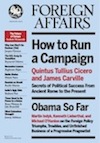 Courtesy: Foreign Affairs
Courtesy: Foreign Affairs
As Europe emerges from economic crisis, a larger challenge remains: finally turning the eurozone into an optimal currency area, with economies similar enough to sustain a single monetary policy. Getting there will be difficult and expensive, but the future of European integration hangs in the balance.
 Courtesy: Flickr/Niyantha
Courtesy: Flickr/Niyantha
India’s tumultuous politics, weakened capital market, retroactive tax laws, uncertain growth rate, and bleak investment climate are adding up to India’s gloom. We need strong leadership and bold reforms to strengthen our economy.
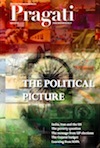 Courtesy: PMO
Courtesy: PMO
Over the past thirty years, the U.S. and Iran have been at odds over Iran's alleged nuclear weapons programme. India too has a large stake with both countries - with the U.S. as a strategic partner and Iran for its oil imports - and resolving this conundrum will require some creative diplomacy.
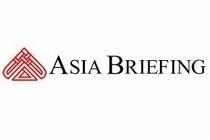 Courtesy: Asia Briefing
Courtesy: Asia Briefing
China’s Outbound Direct Investment(ODI) has reached commercially and geo-economically significant levels and begun to challenge international investments by other countries. Local provincial companies of China are among the fastest growing area in outward investment.
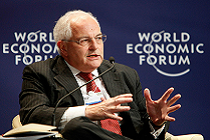 Courtesy: World Economic Forum/Flickr
Courtesy: World Economic Forum/Flickr
The emerging BRICS economies agree that the West should hold less sway in the global economy. But their leaders, despite regular summits, have failed to articulate a coherent vision because of divergent interests, says journalist Martin Wolf.